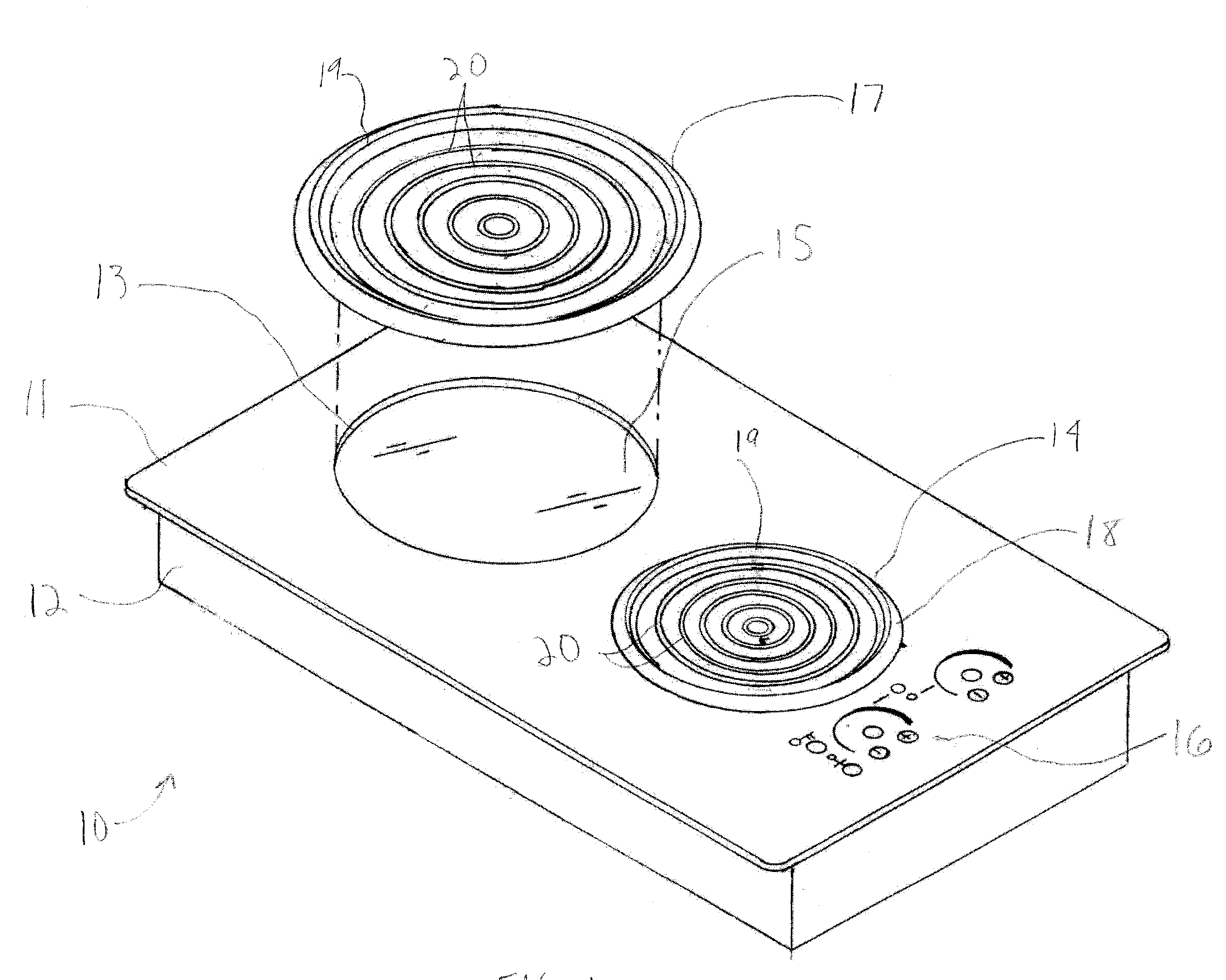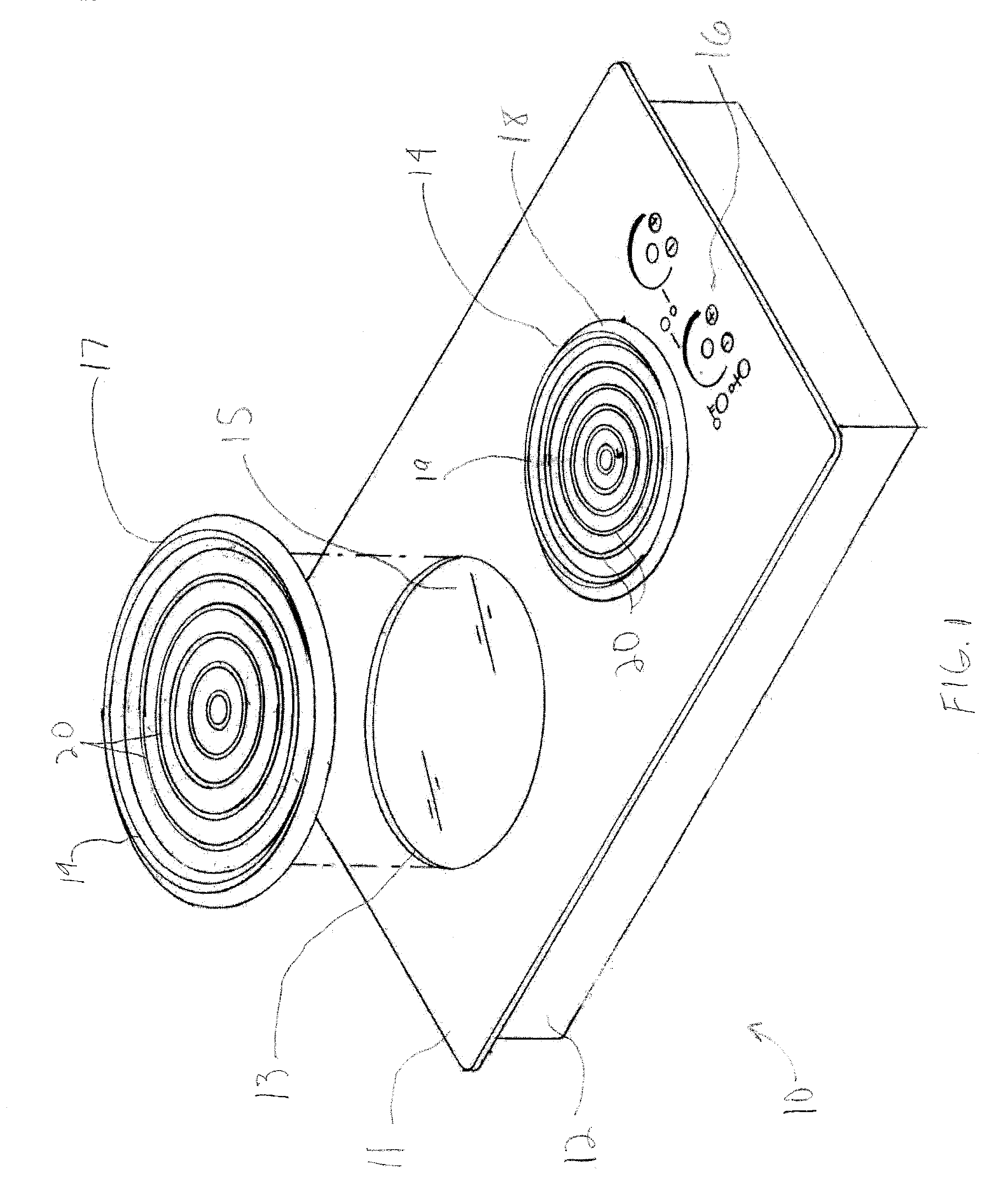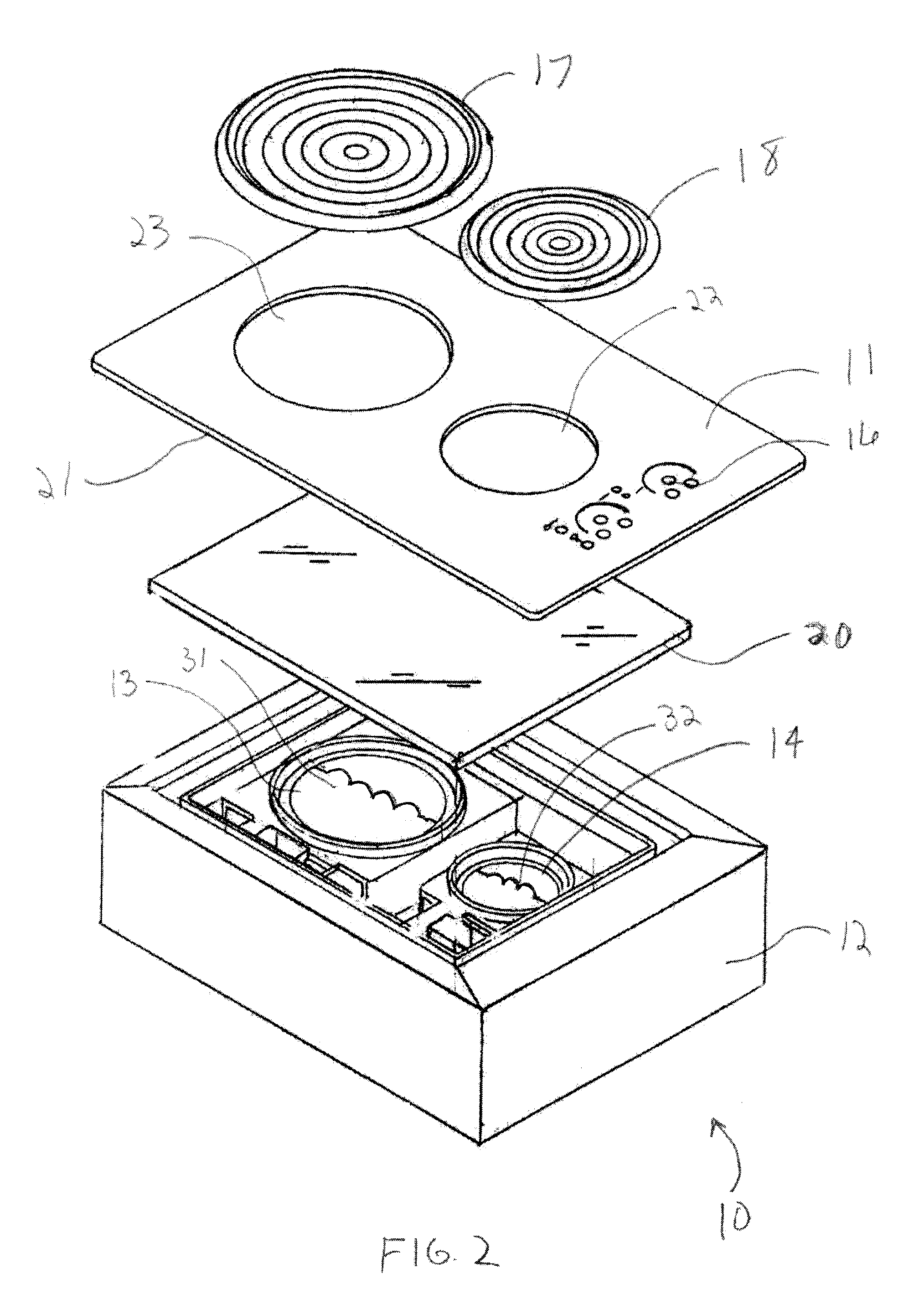Induction Cook-Top Apparatus
a technology of induction stove and cook-top, which is applied in the field of induction stoves, can solve the problems of dangerously hot heating element of traditional electric stove, difficult cleaning of gas stove, and the need for heating the cooking vessel itself, so as to improve the convenience and safety of cooking
- Summary
- Abstract
- Description
- Claims
- Application Information
AI Technical Summary
Benefits of technology
Problems solved by technology
Method used
Image
Examples
Embodiment Construction
[0032]Referring first to FIG. 1, an induction stove assembly 10 is shown. The assembly 10 includes a cook-top 11 that rests on and is secured to a cabinet 12. The assembly 10 includes two induction cooking zones 13 and 14 which are controlled by the controls 16. Controls 16 include power buttons and temperature selection buttons for each cooking zone. A locking button is also included, which can be used to prevent unwanted use of the assembly 10 by a child.
[0033]The induction cooking zones have different sizes—zone 13 is a larger cooking zone than zone 14. The zone 13 has a larger horizontal extent than the zone 14. A larger induction cooking zone is able to heat a large cooking vessel quicker and more evenly than a smaller induction cooking zone would heat that same vessel. Each induction cooking zone has associated with it a recess formed in the cook-top 11. In FIG. 1, only recess 15 corresponding to the induction cooking zone 13 is visible, but the recess corresponding to zone 14...
PUM
| Property | Measurement | Unit |
|---|---|---|
| Temperature | aaaaa | aaaaa |
| Temperature | aaaaa | aaaaa |
| Thickness | aaaaa | aaaaa |
Abstract
Description
Claims
Application Information
 Login to View More
Login to View More - R&D
- Intellectual Property
- Life Sciences
- Materials
- Tech Scout
- Unparalleled Data Quality
- Higher Quality Content
- 60% Fewer Hallucinations
Browse by: Latest US Patents, China's latest patents, Technical Efficacy Thesaurus, Application Domain, Technology Topic, Popular Technical Reports.
© 2025 PatSnap. All rights reserved.Legal|Privacy policy|Modern Slavery Act Transparency Statement|Sitemap|About US| Contact US: help@patsnap.com



